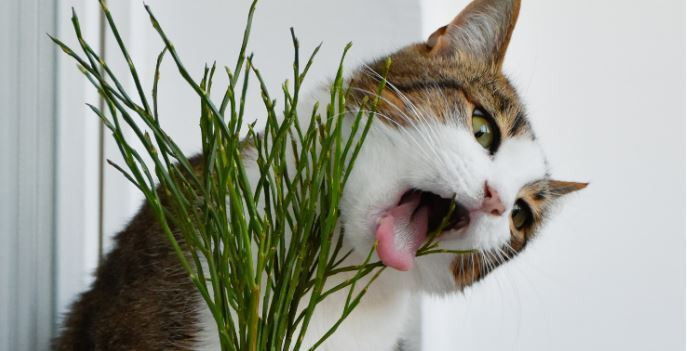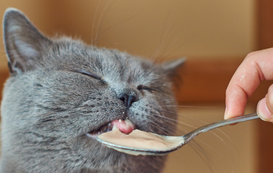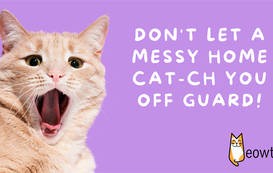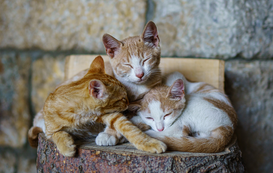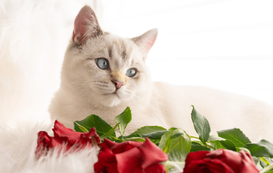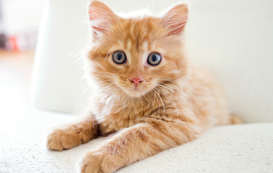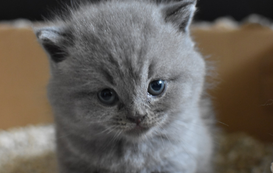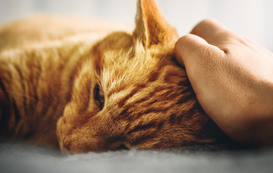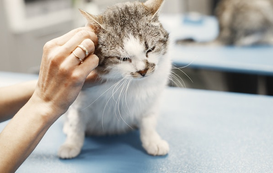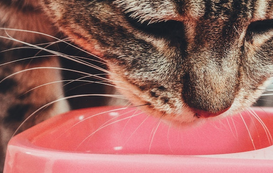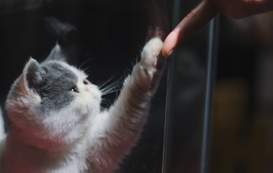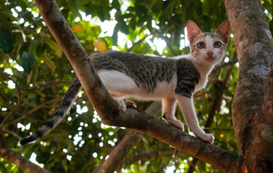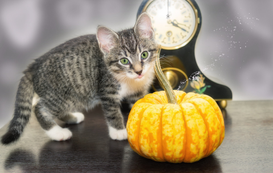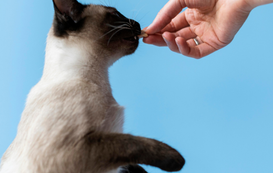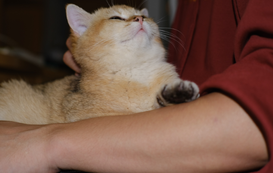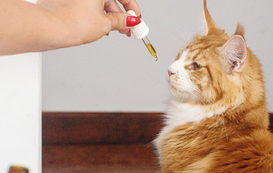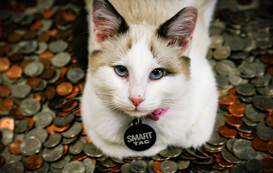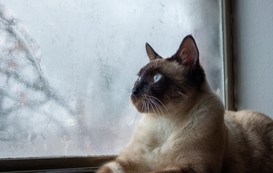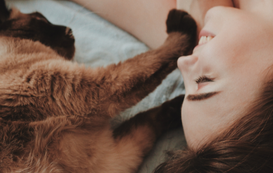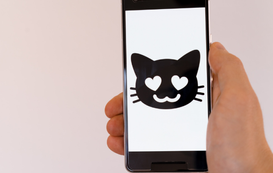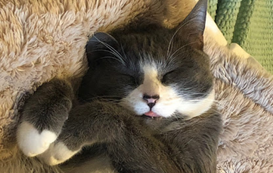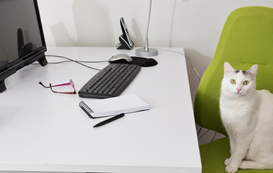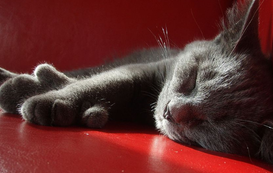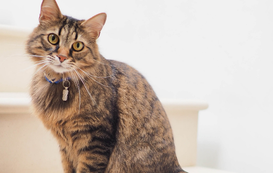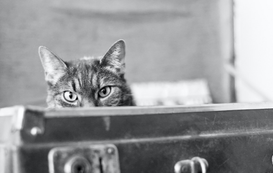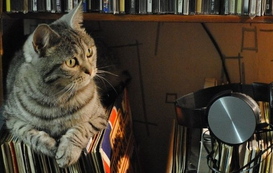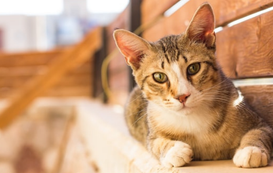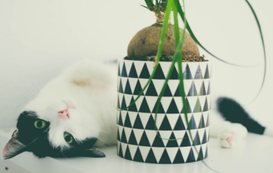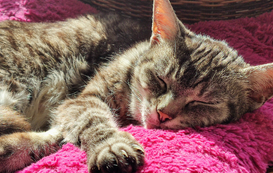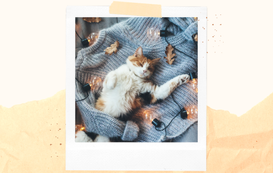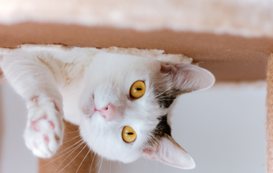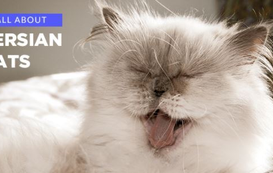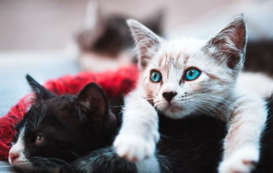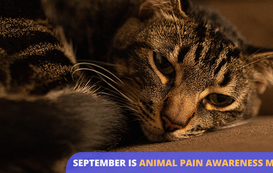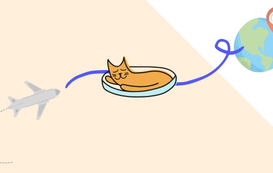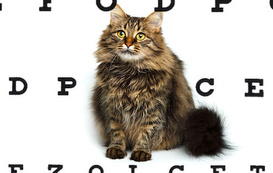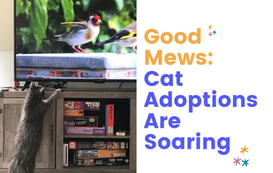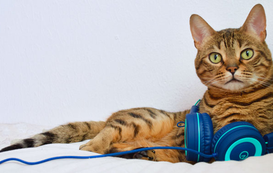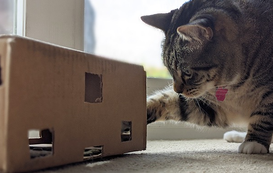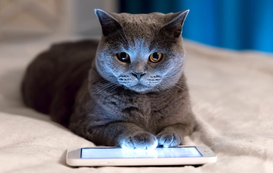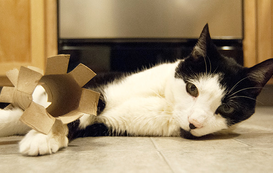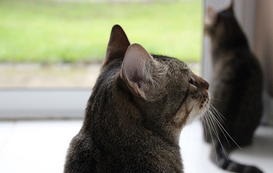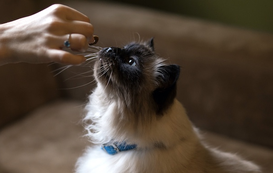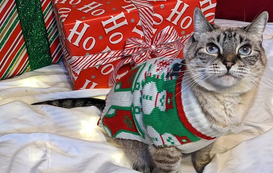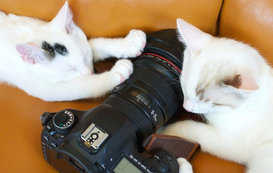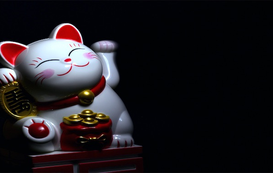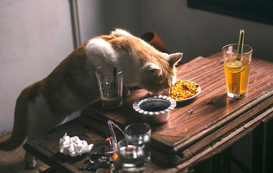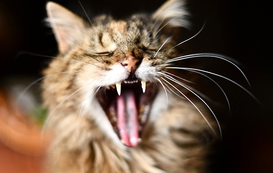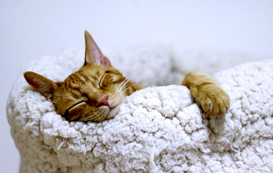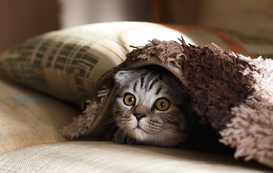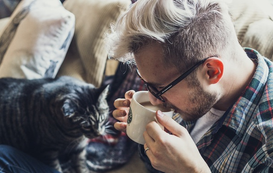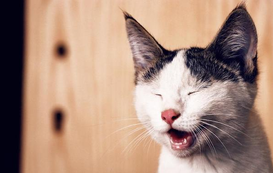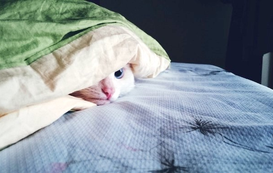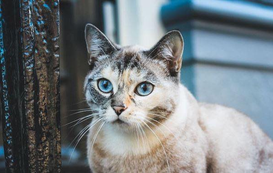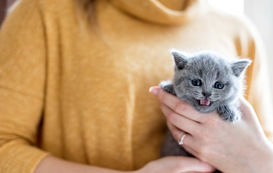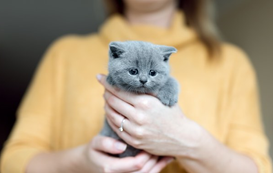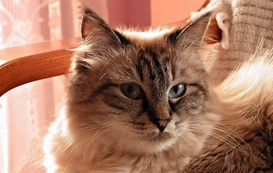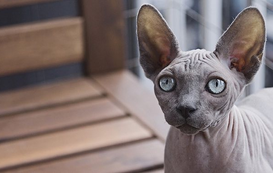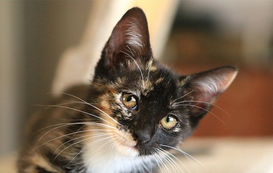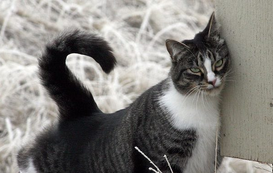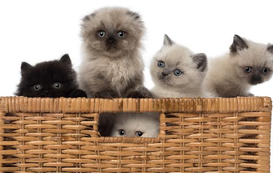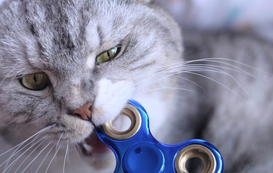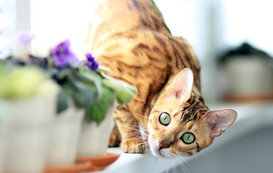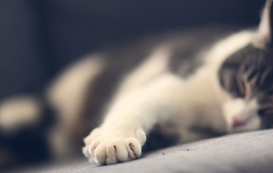Every year during the last week of March pet lovers across the globe observe Poison Prevention Awareness Month: a national day that is important not only for humans but our beloved furry companions as well. An accidental poisoning is one of the most terrifying scenarios a cat parent can be faced with. Yet, pet poison scares are extremely common. Assistant Director at Pet Poison Helpline, Ahna Brutlag, states 'twenty-four hours a day, seven days a week, and 365 days a year, we receive calls from distressed pet owners across the country'.
As a cat parent, you probably already know which human foods and houseplants are toxic to cats. However, accidents can happen to even the most careful owners, especially with particularly food-driven kitties. This is why it is important to regularly brush up on your cat toxicology knowledge. And Poison Prevention Awareness Month is the purrfect time for a refresher course! In this article, we'll go over some major toxic foods, plants and household items to look out for, so that Fluffy can enjoy a spring free of emergency trips to the kitty doctor.
Be Prepared and Recognise the Signs
One of the most important things cat parents need to learn is to notice the telltale signs of cat poisoning. Realizing that your fluffball has eaten something bad can be tricky, especially considering how masterful cats are at hiding their illnesses. Look out for these common symptoms of cat poisoning:
- Vomiting
- Coughing
- Diarrhea
- Difficulty breathing
- Excessive drinking and/or urination
- Loss of appetite
- Confusion and weakness
- Depression
- Abdominal pain and an upset stomach
- Pale gums
- Dilated pupils
- Hypersalivation
- Seizures
- Shivering and/or tremors
- Skin irritation
In the unfortunate case that your cat has ingested poison, it is vital to remain calm and to act fast. Any ingestion of a toxic substance requires immediate veterinary care. Always take your fluffer in for an emergency check-up, even if you're only suspecting it has consumed harmful matter. Owners can also contact the ASPCA Animal Poison Control Center and the Pet Poison Helpline in case of an emergency.
Human Foods Toxic to Cats
Onions and Garlic
These two items are at the top of this list because of how harmful they are for cats. Onions, garlic, chives, leeks, shallots and other vegetables in this family are way too acidic for feline buddies to digest. Cats that have ingested onions or garlic show a number of signs: vomiting, diarrhea, nausea, lethargy, loss of appetite, drooling and pale gums, among others. Consuming onions and other similar vegetables can severely damage a cat's blood cells and even cause them to become anemic. Thankfully, most cats won't go near those ingredients, but you should still never leave them on the counter unattended. Better be safe than sorry.
Chocolate and Caffeine
While it might be tempting to give Fluffy a bit of that delicious chocolate you've been nibbling on, it is really something to avoid. Chocolate contains a compound known as theobromine, which, when ingested, can cause all kinds of dangerous side effects to your purrball. Look out for dark chocolate in particular because it has higher amounts of theobromine. Keep in mind that most chocolate contains caffeine, which is also deadly to cats. So purrlease keep caffeine-infused tea and energy drinks stored away.
Grapes, Raisins, Currants and Cherries
While these fruits may seem like the perfect refreshing snack, it is not a good idea to feed them to your furball. Experts are actually not sure what makes grapes and other similar fruit dangerous to cats, but it is best to avoid them all together, as they have been reported to cause kidney failure. Remember to also keep the garbage bin safely sealed, since Fluffy could easily go digging about and eat them directly from the trash. Yum!
Uncooked Eggs
While the white part of cooked eggs can be an occasional healthy treat for Fluffy, raw eggs should absolutely not be part of his diet. Feeding your feline bestie uncooked eggs puts them at risk of being infected with salmonella. Not only that, but raw egg yolks contain avidin, a protein that when consumed can cause serious skin and coat problems for cats.
Alcohol
It is a Friday night, you come home after a long day at work. What better way to wind down than with some wine? It might seem obvious, but remember to remove all alcohol containers before heading to bed. As you can imagine, alcohol can be extremely harmful to cats. Ingesting alcohol can cause severe liver and brain damage to cats, and even just a teaspoon can be lethal.
Unbaked Yeast Dough
Perhaps an unexpected item on the list, but dough can indeed cause serious harm to furry feline friends. When dough rises, it produces ethanol (which is essentially alcohol) and carbon dioxide. As you can imagine, unbaked dough will cause a cat's stomach to bloat and eventually even rupture. In most cases, the dough needs to be surgically removed! Definitely a risk all cat parents would want to avoid.
Xylitol
What is Xylitol? You might be wondering. Xylitol is a sweetener used in a multitude of food products such as candy and sugarless gum. Whether or not this substance is toxic to cats has been a debate among animal specialists. Some sources state that Xylitol is relatively harmless to cats and there has even been a recent study in support of this opinion. On the other hand, the Pet Poison Helpline does mention Xylitol under the human foods toxic for cats, stating that even small amounts of it can be life-threatening.
House Plants Toxic to Cats
In the springtime, some of us like to bring home bouquets of fragrant greenery and flowers. While this is a nice way of sprucing up our homes and apartments, there is a long list of plants that can lead to serious health complications for feline roommates, most notably kidney failure. And you know how interested Fluffy gets in anything new that enters the house. So it is important to be aware of and avoid these hazardous plants:
- Lilies
- Tulips
- Aloe
- Amaryllis
- Azalea
- Chrysanthemum
- Hyacinths
- Lily
- Marijuana
- Mistletoe
- Mandrake
- Milkweed
- Jade
- Eucalyptus
- Rhododendron
- Daffodils
- Sago palms
For a complete list of toxic houseplants for cats, visit the ASPCA “Plants Toxic to Cats” page.
Household Items Toxic to Cats
Certain Medications
Most people would instinctively know that human medications should not be consumed by cats. Still, kitty parents need to be extra cautious when leaving out their over-the-counter and prescription drugs, since they can be life-threatening to cats. The main ones include antidepressants (like Prozac, Paxil, Celexa and Effexor), ibuprofen, acetaminophen and naproxen (such as Advil, Tylenol or Aleve respectively).
Cleaning Supplies and Other Chemicals
Duh, chemicals are poisonous to cats. Surely an obvious one, but worth mentioning nonetheless. Be extremely mindful about leaving those around. Certain liquids that are commonly used by humans contain dangerous substances, such as antifreeze, bleach and fertilizers. While extremely poisonous, cats tend to be particularly attracted to antifreeze because of its sweet taste. Tick and flea repellents made specifically for dogs are also toxic to cats and should in no way be used on them. So always make sure to keep those products safely stored away and out of paw's reach.
Rat Poison (aka Rodenticides)
These pesticides can be life-threatening if ingested by a cat, because, well, they are literally poison. Be careful when using such products because many newer ones have no known antidote. Cats can also accidentally consume rodenticides when they catch an infected rat or mouse. So keep an eye on Fluffy when his primal instincts kick in.
Talk to Your cat sitter on Meowtel about Cat Poison Prevention
Cat sitters on Meowtel appreciate detailed feeding instructions. Suggest you share your cat's eating habits and restrictions with your sitter, so that they know what to look out for. It is also a good idea to keep within arm's reach a copy of your veterinarian's phone number, along with that of the Pet Prevention Helpline: (855) 764-7661.
Photo by Artem Makarov via Unsplash
Ready to find the purrfect sitter for your feline friend? Find a cat sitter on Meowtel today!

